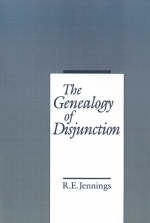
The Genealogy of Disjunction
Seiten
1995
Oxford University Press Inc (Verlag)
978-0-19-507524-3 (ISBN)
Oxford University Press Inc (Verlag)
978-0-19-507524-3 (ISBN)
This is a study of the English word and the logical operators variously proposed to present its meaning. It examines the textbook myths that have clouded our understanding of "logical" vocabulary, and considers the historical conceptions of disjunction and its place in logic from ancient times.
This is a comprehensive study of the English word or, and the logical operators variously proposed to present its meaning. Although there are indisputably disjunctive uses of or in English, it is a mistake to suppose that logical disjunction represents its core meaning. Or is descended from the Anglo-Saxon word meaning second, a form which survives in such expressions as `every other day'. Its disjunctive uses arise through metalinguistic applications of an intermediate adverbial meaning which is conjunctive rather than disjunctive in character.
These conjunctive uses have puzzled philosophers and logicians, and have been discussed extensively under such headings as `free choice permission'. This study examines the textbook myths that have clouded our understanding of how or and other `logical' vocabulary comes to have something approaching its logical meaning in natural languages. It considers the various historical conceptions of disjunction and its place in logic from the Stoics to the present day.
This is a comprehensive study of the English word or, and the logical operators variously proposed to present its meaning. Although there are indisputably disjunctive uses of or in English, it is a mistake to suppose that logical disjunction represents its core meaning. Or is descended from the Anglo-Saxon word meaning second, a form which survives in such expressions as `every other day'. Its disjunctive uses arise through metalinguistic applications of an intermediate adverbial meaning which is conjunctive rather than disjunctive in character.
These conjunctive uses have puzzled philosophers and logicians, and have been discussed extensively under such headings as `free choice permission'. This study examines the textbook myths that have clouded our understanding of how or and other `logical' vocabulary comes to have something approaching its logical meaning in natural languages. It considers the various historical conceptions of disjunction and its place in logic from the Stoics to the present day.
| Erscheint lt. Verlag | 9.2.1995 |
|---|---|
| Verlagsort | New York |
| Sprache | englisch |
| Maße | 165 x 244 mm |
| Gewicht | 710 g |
| Themenwelt | Geisteswissenschaften ► Philosophie ► Logik |
| Geisteswissenschaften ► Philosophie ► Sprachphilosophie | |
| ISBN-10 | 0-19-507524-2 / 0195075242 |
| ISBN-13 | 978-0-19-507524-3 / 9780195075243 |
| Zustand | Neuware |
| Haben Sie eine Frage zum Produkt? |
Mehr entdecken
aus dem Bereich
aus dem Bereich
Buch | Softcover (2023)
De Gruyter (Verlag)
CHF 34,90
ein Gegenentwurf zum kurzfristigen Denken : so werden wir zu den …
Buch | Hardcover (2023)
REDLINE (Verlag)
CHF 27,90


